
SCARS Institute’s Encyclopedia of Scams™ Published Continuously for 25 Years

Author:
• Tim McGuinness, Ph.D., DFin, MCPO, MAnth – Anthropologist, Scientist, Director of the Society of Citizens Against Relationship Scams Inc.
Originally Published: 2023 – Article Updated: 2024
Article Abstract
The Anchoring Bias, a powerful cognitive bias, significantly influences decision-making processes and susceptibility to manipulation, particularly in the context of scams and financial exploitation. Victims of scams often fall prey to this bias, anchoring their perceptions and judgments around initial information presented by fraudsters.
Scammers strategically exploit this vulnerability by presenting inflated offers or claims, creating a sense of urgency, and making incremental concessions to manipulate victims into accepting unfavorable terms.
Consequently, victims experience not only financial losses but also psychological distress, grappling with the cognitive dissonance between their initial beliefs and the harsh reality of the scam. Understanding the anchoring bias is important in combating fraud and safeguarding individuals against deceptive schemes.
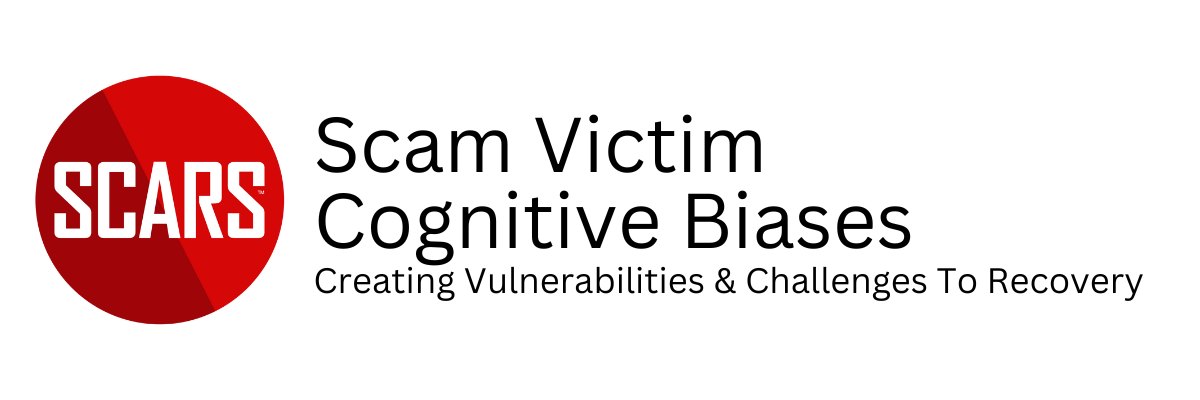
Anchoring Bias: How It Manipulates Scam Victims and Amplifies Financial Exploitation
Anchoring bias operates on the premise that initial information or stimuli serve as reference points, exerting a disproportionate influence on subsequent judgments or decisions. This cognitive shortcut leads individuals to anchor their perceptions, estimates, or valuations around the initial piece of information encountered, often to the detriment of logical reasoning or critical evaluation.
Amongst cognitive biases, the anchoring bias is significant a powerful force shaping decision-making processes and susceptibility to manipulation. This cognitive quirk, characterized by individuals’ tendency to rely heavily on the first piece of information encountered (the “anchor”) when making subsequent judgments or assessments, plays a pivotal role in the context of scams and financial exploitation. Understanding the mechanisms of anchoring bias and its profound effects on scam victims is crucial in combating fraud and safeguarding vulnerable individuals against deceptive schemes.
Anchoring Bias Introduction
Finally, the Anchoring Bias can make people more susceptible to scams. This bias occurs when people rely too heavily on the first piece of information they receive and anchor their decisions on it. For example, if someone is offered a product at a high initial price and then offered a discount, they might be more likely to purchase the product because they are anchored to the high initial price. This can make them more vulnerable to scams if the initial price is inflated and the final price is still more than the product is worth.
The anchoring effect causes an individual’s decisions to be influenced by a particular reference point or ‘anchor’.
Both numeric and non-numeric anchoring have been reported in research (meaning numeric/numbers, text-written information, and even visuals – images & video).
In numeric anchoring, once the value of the anchor is set, subsequent arguments, estimates, etc. made by an individual may change from what they would have otherwise been without the anchor. For example, an individual may be more likely to purchase a car if it is placed alongside a more expensive model (the anchor). Prices discussed in negotiations that are lower than the anchor may seem reasonable, perhaps even cheap to the buyer, even if said prices are still relatively higher than the actual market value of the car.
Another example may be when estimating the orbit of Mars, one might start with the Earth’s orbit (365 days) and then adjust upward until they reach a value that seems reasonable (usually less than 687 days, the correct answer).
In other words, it is a bias that shows up in comparison. You shift your answer one way or the other based on what you are comparing it to. Often excluding information because it was not what you found first.
Psychological Mechanisms at Play
The anchoring bias stems from the intricacies of human cognition, including cognitive heuristics and information processing shortcuts. When confronted with complex decisions or uncertain situations, individuals seek cognitive shortcuts to streamline the decision-making process. Anchoring provides a cognitive anchor point that simplifies the evaluation of subsequent information, albeit at the cost of accuracy or rationality.
Exploiting Vulnerabilities: Scams and Financial Fraud
Scammers and fraudsters adeptly leverage the anchoring bias to manipulate and deceive their victims, exploiting cognitive vulnerabilities for financial gain. By strategically anchoring initial communications, offers, or proposals at inflated values or unrealistic expectations, perpetrators prime their targets to accept subsequent, less favorable terms or requests.
Psychological Tactics Employed by Scammers
Scammers employ a myriad of psychological tactics to exploit the anchoring bias and maximize their chances of success:
- Initial Overvaluation: Scammers often present initial offers or opportunities with exaggerated claims of value or potential returns, anchoring victims’ expectations at inflated levels.
- Sense of Urgency: By creating artificial deadlines or invoking a sense of urgency, scammers amplify the anchoring effect, compelling victims to make impulsive decisions based on the initial anchor point.
- Incremental Concessions: After establishing a high anchor, scammers may make incremental concessions or adjustments, leading victims to perceive subsequent offers as more reasonable or favorable, despite still being exploitative.
Amplifying the Impact on Scam Victims
The anchoring bias amplifies the impact of scams on victims in several ways:
- Financial Losses: Victims anchored to inflated expectations may overlook red flags or warning signs, leading them to invest or commit funds to fraudulent schemes, resulting in significant financial losses.
- Psychological Distress: The realization of being deceived and the magnitude of financial losses can trigger feelings of shame, guilt, and despair, exacerbating the psychological toll on victims.
- Cognitive Dissonance: Victims may experience cognitive dissonance as they grapple with the stark contrast between their initial beliefs or expectations and the harsh reality of the scam, further intensifying emotional distress.
Summary
Anchoring bias serves as a potent tool in the arsenal of scammers and fraudsters, enabling them to manipulate perceptions, override rational judgment, and exploit vulnerable individuals for financial gain. By understanding the mechanisms of anchoring bias and its profound effects on scam victims, society can work towards enhancing awareness, resilience, and consumer protections, thereby creating a safer and more secure environment for all individuals to navigate the complexities of financial decision-making.
About Cognitive Biases
This article is part of SCARS continuing commitment to helping the victims of scams (financial fraud) to better understand the psychology of scams. In other words, why are victims vulnerable and how do Cognitive Biases relate to that?
How Do Cognitive Biases Make People Vulnerable To Scams, Fraud, and Deception
How do cognitive biases play a role in making people vulnerable and susceptible to scams, fraud, and deception?
Cognitive biases are mental shortcuts that allow people to make quick decisions and judgments based on their past experiences and memories. These biases can be helpful in many situations, as they allow people to process large amounts of information quickly and efficiently. However, they can also make people vulnerable to scams, fraud, and deception.
One reason why cognitive biases make people vulnerable to scams is that they can lead people to make judgments that are not based on evidence or logical reasoning. For example, Confirmation Bias (a major bias that makes people vulnerable) is the tendency to seek out and interpret information that supports one’s preexisting beliefs, while ignoring or dismissing information that contradicts them. This can make people more susceptible to scams that appeal to their beliefs or biases, as they are more likely to believe the scammer’s claims without critically evaluating the evidence.
There are several ways that people can protect themselves from scams, fraud, and deception. One way is to be aware of common cognitive biases and how they can affect decision-making. This can help people to be more mindful of their thought processes and to question their own judgments.
Another way to protect oneself is to be skeptical of claims and offers that seem too good to be true. It is important to carefully evaluate the evidence and to ask questions before making a decision. This can help people to avoid falling for scams that rely on emotional appeals or incomplete information.
It can also be helpful to seek out additional sources of information and to consult with trusted friends, family members, or professionals before making a decision. This can provide a more balanced perspective and help to identify any potential red flags. But if you do not understand your Cognitive Biases then you will not even see the red flags!
Overall, cognitive biases can make people vulnerable to scams, fraud, and deception by leading them to make judgments that are not based on evidence or logical reasoning, and by causing them to make irrational or risky decisions. However, by being aware of these biases and taking steps to protect oneself, people can reduce their risk of falling victim to these types of scams.
Summary
Cognitive biases do make people more vulnerable to scams, fraud, and deception by causing them to ignore warning signs, pay more attention to information that supports their preexisting beliefs, rely on incomplete information, and anchor their decisions to easy and often incorrect information.
By being aware of these biases and making an effort to overcome them, people can be better equipped to avoid falling victim to scams and other forms of deception.
Statement About Victim Blaming
SCARS Institute articles examine different aspects of the scam victim experience, as well as those who may have been secondary victims. This work focuses on understanding victimization through the science of victimology, including common psychological and behavioral responses. The purpose is to help victims and survivors understand why these crimes occurred, reduce shame and self-blame, strengthen recovery programs and victim opportunities, and lower the risk of future victimization.
At times, these discussions may sound uncomfortable, overwhelming, or may be mistaken for blame. They are not. Scam victims are never blamed. Our goal is to explain the mechanisms of deception and the human responses that scammers exploit, and the processes that occur after the scam ends, so victims can better understand what happened to them and why it felt convincing at the time, and what the path looks like going forward.
Articles that address the psychology, neurology, physiology, and other characteristics of scams and the victim experience recognize that all people share cognitive and emotional traits that can be manipulated under the right conditions. These characteristics are not flaws. They are normal human functions that criminals deliberately exploit. Victims typically have little awareness of these mechanisms while a scam is unfolding and a very limited ability to control them. Awareness often comes only after the harm has occurred.
By explaining these processes, these articles help victims make sense of their experiences, understand common post-scam reactions, and identify ways to protect themselves moving forward. This knowledge supports recovery by replacing confusion and self-blame with clarity, context, and self-compassion.
Additional educational material on these topics is available at ScamPsychology.org – ScamsNOW.com and other SCARS Institute websites.
Psychology Disclaimer:
All articles about psychology and the human brain on this website are for information & education only
The information provided in this article is intended for educational and self-help purposes only and should not be construed as a substitute for professional therapy or counseling.
While any self-help techniques outlined herein may be beneficial for scam victims seeking to recover from their experience and move towards recovery, it is important to consult with a qualified mental health professional before initiating any course of action. Each individual’s experience and needs are unique, and what works for one person may not be suitable for another.
Additionally, any approach may not be appropriate for individuals with certain pre-existing mental health conditions or trauma histories. It is advisable to seek guidance from a licensed therapist or counselor who can provide personalized support, guidance, and treatment tailored to your specific needs.
If you are experiencing significant distress or emotional difficulties related to a scam or other traumatic event, please consult your doctor or mental health provider for appropriate care and support.
Also read our SCARS Institute Statement about Professional Care for Scam Victims – click here to go to our ScamsNOW.com website.
If you are in crisis, feeling desperate, or in despair please call 988 or your local crisis hotline.
-/ 30 /-
What do you think about this?
Please share your thoughts in a comment below!
Table of Contents
- Cognitive Biases Play a Role In Your Vulnerability & Susceptibility To Scams
- Article Abstract
- Anchoring Bias: How It Manipulates Scam Victims and Amplifies Financial Exploitation
- Anchoring Bias Introduction
- Psychological Mechanisms at Play
- Exploiting Vulnerabilities: Scams and Financial Fraud
- Psychological Tactics Employed by Scammers
- Amplifying the Impact on Scam Victims
- Summary
- About Cognitive Biases
- How Do Cognitive Biases Make People Vulnerable To Scams, Fraud, and Deception
- Summary
- More About Cognitive Biases & Vulnerabilities
LEAVE A COMMENT?
Thank you for your comment. You may receive an email to follow up. We never share your data with marketers.
Recent Comments
On Other Articles
- on Love Bombing And How Romance Scam Victims Are Forced To Feel: “I was love bombed to the point that I would do just about anything for the scammer(s). I was told…” Feb 11, 14:24
- on Dani Daniels (Kira Lee Orsag): Another Scammer’s Favorite: “You provide a valuable service! I wish more people knew about it!” Feb 10, 15:05
- on Danielle Delaunay/Danielle Genevieve – Stolen Identity/Stolen Photos – Impersonation Victim UPDATED 2024: “We highly recommend that you simply turn away form the scam and scammers, and focus on the development of a…” Feb 4, 19:47
- on The Art Of Deception: The Fundamental Principals Of Successful Deceptions – 2024: “I experienced many of the deceptive tactics that romance scammers use. I was told various stories of hardship and why…” Feb 4, 15:27
- on Danielle Delaunay/Danielle Genevieve – Stolen Identity/Stolen Photos – Impersonation Victim UPDATED 2024: “Yes, I’m in that exact situation also. “Danielle” has seriously scammed me for 3 years now. “She” (he) doesn’t know…” Feb 4, 14:58
- on An Essay on Justice and Money Recovery – 2026: “you are so right I accidentally clicked on online justice I signed an agreement for 12k upfront but cd only…” Feb 3, 08:16
- on The SCARS Institute Top 50 Celebrity Impersonation Scams – 2025: “Quora has had visits from scammers pretending to be Keanu Reeves and Paul McCartney in 2025 and 2026.” Jan 27, 17:45
- on Scam Victims Should Limit Their Exposure To Scam News & Scammer Photos: “I used to look at scammers photos all the time; however, I don’t feel the need to do it anymore.…” Jan 26, 23:19
- on After A Scam, No One Can Tell You How You Will React: “This article was very informative, my scams happened 5 years ago; however, l do remember several of those emotions and/or…” Jan 23, 17:17
- on Situational Awareness and How Trauma Makes Scam Victims Less Safe – 2024: “I need to be more observant and I am practicing situational awareness. I’m saving this article to remind me of…” Jan 21, 22:55
ARTICLE META
Important Information for New Scam Victims
- Please visit www.ScamVictimsSupport.org – a SCARS Website for New Scam Victims & Sextortion Victims
- Enroll in FREE SCARS Scam Survivor’s School now at www.SCARSeducation.org
- Please visit www.ScamPsychology.org – to more fully understand the psychological concepts involved in scams and scam victim recovery
If you are looking for local trauma counselors please visit counseling.AgainstScams.org or join SCARS for our counseling/therapy benefit: membership.AgainstScams.org
If you need to speak with someone now, you can dial 988 or find phone numbers for crisis hotlines all around the world here: www.opencounseling.com/suicide-hotlines
A Note About Labeling!
We often use the term ‘scam victim’ in our articles, but this is a convenience to help those searching for information in search engines like Google. It is just a convenience and has no deeper meaning. If you have come through such an experience, YOU are a Survivor! It was not your fault. You are not alone! Axios!
A Question of Trust
At the SCARS Institute, we invite you to do your own research on the topics we speak about and publish, Our team investigates the subject being discussed, especially when it comes to understanding the scam victims-survivors experience. You can do Google searches but in many cases, you will have to wade through scientific papers and studies. However, remember that biases and perspectives matter and influence the outcome. Regardless, we encourage you to explore these topics as thoroughly as you can for your own awareness.
Statement About Victim Blaming
SCARS Institute articles examine different aspects of the scam victim experience, as well as those who may have been secondary victims. This work focuses on understanding victimization through the science of victimology, including common psychological and behavioral responses. The purpose is to help victims and survivors understand why these crimes occurred, reduce shame and self-blame, strengthen recovery programs and victim opportunities, and lower the risk of future victimization.
At times, these discussions may sound uncomfortable, overwhelming, or may be mistaken for blame. They are not. Scam victims are never blamed. Our goal is to explain the mechanisms of deception and the human responses that scammers exploit, and the processes that occur after the scam ends, so victims can better understand what happened to them and why it felt convincing at the time, and what the path looks like going forward.
Articles that address the psychology, neurology, physiology, and other characteristics of scams and the victim experience recognize that all people share cognitive and emotional traits that can be manipulated under the right conditions. These characteristics are not flaws. They are normal human functions that criminals deliberately exploit. Victims typically have little awareness of these mechanisms while a scam is unfolding and a very limited ability to control them. Awareness often comes only after the harm has occurred.
By explaining these processes, these articles help victims make sense of their experiences, understand common post-scam reactions, and identify ways to protect themselves moving forward. This knowledge supports recovery by replacing confusion and self-blame with clarity, context, and self-compassion.
Additional educational material on these topics is available at ScamPsychology.org – ScamsNOW.com and other SCARS Institute websites.
Psychology Disclaimer:
All articles about psychology and the human brain on this website are for information & education only
The information provided in this article is intended for educational and self-help purposes only and should not be construed as a substitute for professional therapy or counseling.
While any self-help techniques outlined herein may be beneficial for scam victims seeking to recover from their experience and move towards recovery, it is important to consult with a qualified mental health professional before initiating any course of action. Each individual’s experience and needs are unique, and what works for one person may not be suitable for another.
Additionally, any approach may not be appropriate for individuals with certain pre-existing mental health conditions or trauma histories. It is advisable to seek guidance from a licensed therapist or counselor who can provide personalized support, guidance, and treatment tailored to your specific needs.
If you are experiencing significant distress or emotional difficulties related to a scam or other traumatic event, please consult your doctor or mental health provider for appropriate care and support.
Also read our SCARS Institute Statement about Professional Care for Scam Victims – click here to go to our ScamsNOW.com website.


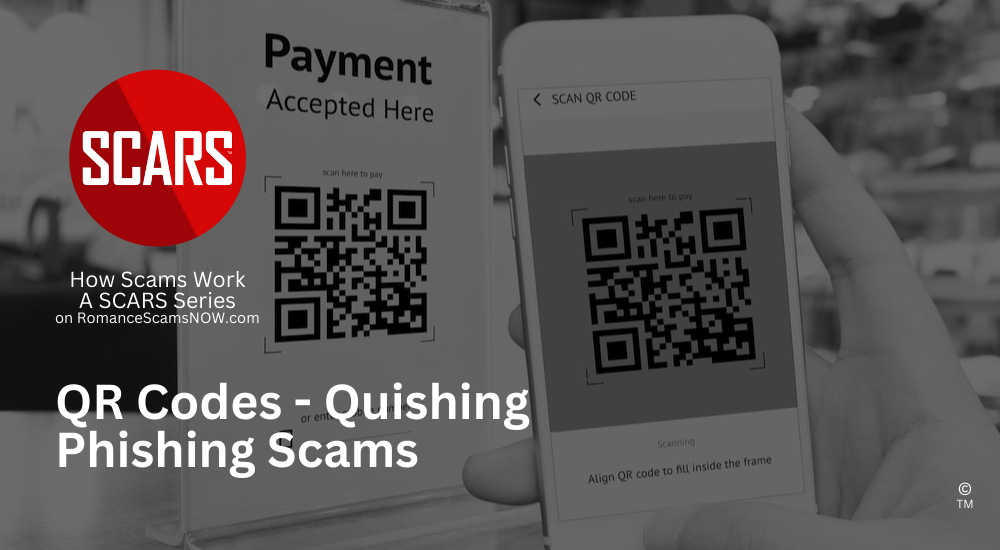
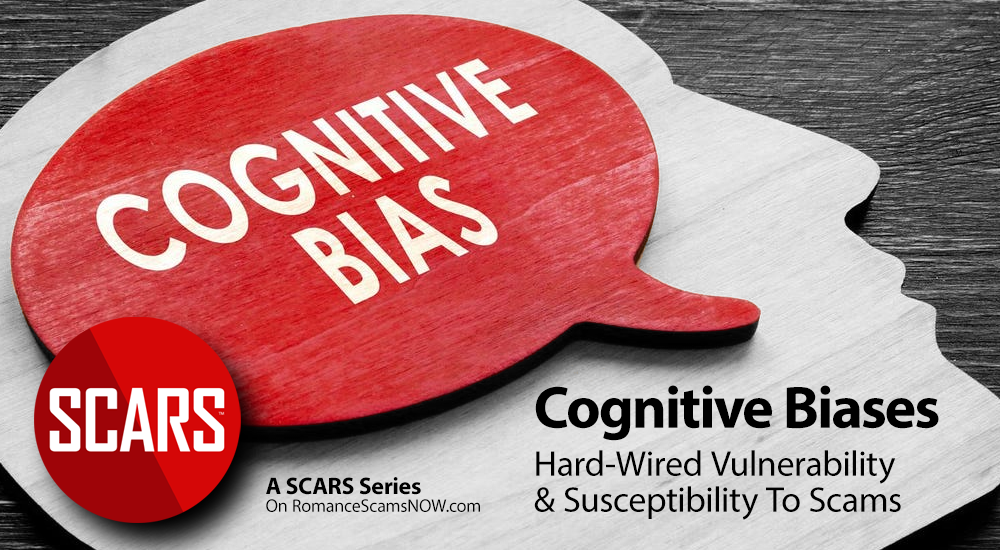


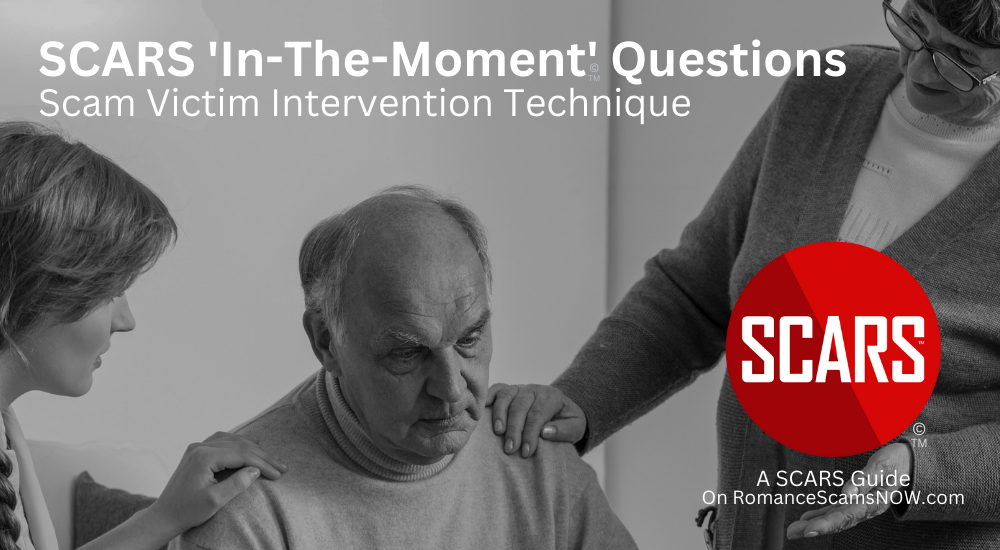
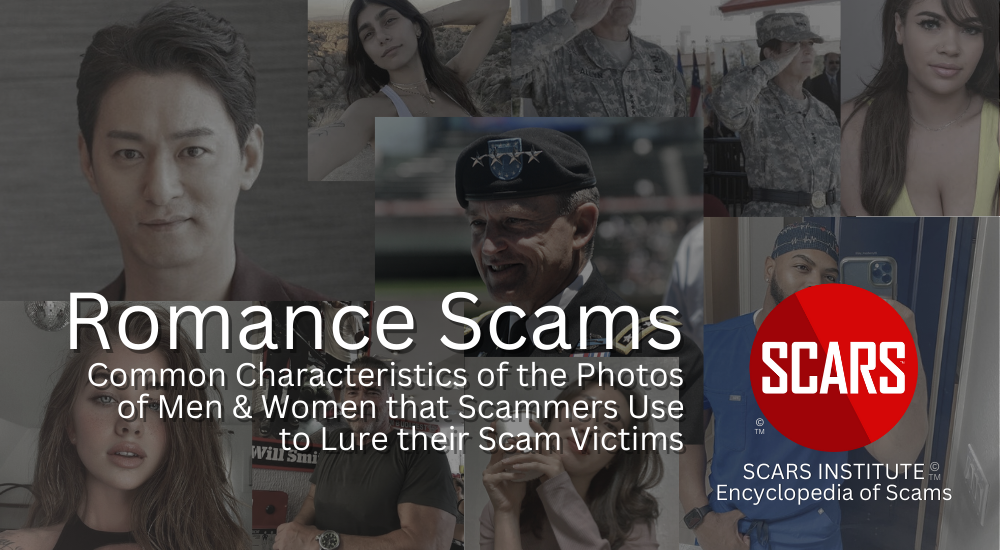
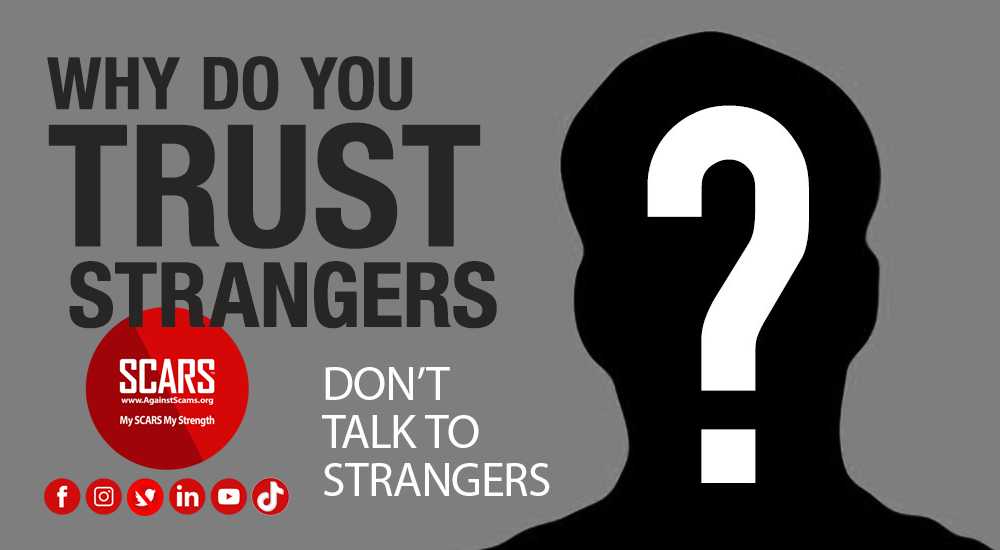












This is a good article to read again and again. I now understand what, why, and how and will be more mindful in my observation. Looking back I can see the anchoring bias at play with my fraudster.
When I was in sales, I used the anchoring bias all the time. It was really effective. When cognitive bias was used against me I realized that I was ignoring red flags but wanted to believe the first anchoring piece of information since I believed it would lead to financial wealth.
Good to be able to name what happened using the correct term.